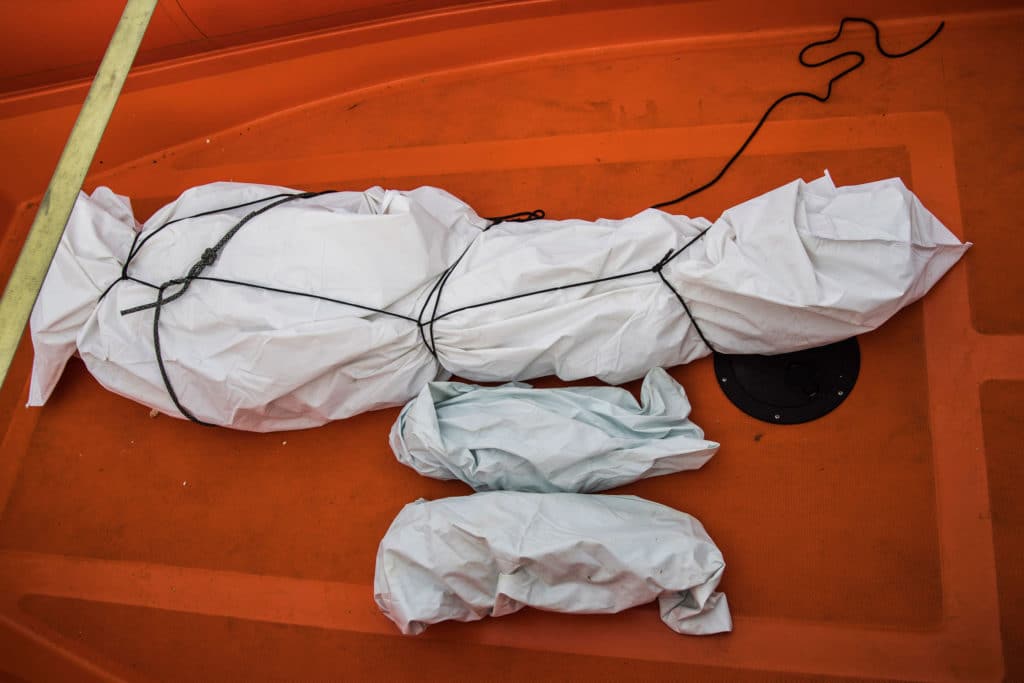As the latest tragedy has unfolded this week of people going missing at sea when trying to cross into Spain, it has been revealed that between the months of January and July, more than 200 people have died or disappeared in shipwrecks trying to reach the coasts of Valencia, Murcia or the Balearic Islands through the so-called Algerian route.
Of the 287 people counted by the Centro para la Identificación de Migrantes Desaparecidos (Cipimd), only 82 ended up reaching land. The entity has counted 24 shipwrecks in seven months, in precarious boats that carried between 14 and 18 people.
The rest are officially missing, but that’s an understatement. “Sometimes the sea returns the bodies, but if there is no body, they cannot be considered dead,” explains María José Colsa, the president of Cipimd, the group that collaborates with Salvamento Marítimo and the Guardia Civil to identify the victims.
The Cipimd has delegates on the three major migratory routes by sea: the Canary Islands, the Alboran Sea route and the Algerian route. They are in contact with the families or with the migrants themselves through a telephone number and in many cases, such as the recently sunk boat between Alicante and Murcia from which eight bodies have been rescued (two of them children), are the first to sound the alarm to the Guardia Civil. “When 72 hours or more have passed, families call us to explain that their loved one left in a boat to find out if they have already reached the coast,” he explains.
When a boat is shipwrecked, they try to reconstruct the passage with information from the families, who either call or fill out a search form on the entity’s website. There they are asked to describe the physical characteristics of the person, the clothes they were wearing at the time of leaving or some differentiating element “so we try to know if the recovered corpses correspond to them or not,” says Colsa. The task, on too many occasions, is “that the body is not buried under a number of preliminary procedures, at least to name them and that they are buried in their country, near the family,” she explains.
The Cipimd collaborates with the Spanish authorities in identification tasks, and quickly issues all the information to the Guardia Civil or the National Police, both regarding identifications and possible shipwrecks that a migrant or family member communicates to them via mobile. “There are those who get on a small boat and leave our number to the family so that they can ask if we have arrived safely,” says Colsa. Official arrival data collected by the Ministry of the Interior show that the Algerian route has decreased slightly, and that last year some 77 boats with more than 800 people on board were rescued.
Because the reality, despite all the deaths and disappearances at sea, is that there is no number, neither from the Government nor from any other body, that families can call to find out what has become of their loved one who left on a precarious ship to Spain. There is only that of this entity and other NGOs.
“Before they called directly to the municipalities of Murcia or Alicante, but as usual they were not able to tell them anything, they even tried to move and file a complaint about the disappearance, but without success,” explains Colsa. “We try to call relatives when people have arrived safely, or when we have to identify the bodies.”
The Algerian route is the least important of the three major sea routes that are used for trips by canoe or small boat, and in practice, the vast majority of boats are intercepted by the authorities of the Maghreb country before even leaving. Later, there is another large part (according to estimates by the entities and the Maritime Rescue) that sink or stop advancing a few miles from the coast. The smallest number end up disembarking in an Alicante cove or a Balearic beach on a journey of more than 600 km where merchant ships that can spot them do not usually sail.
Colsa explains that this year the arrivals have decreased slightly, according to her, due to the bad weather and the reinforcement of the Algerian border control. On Sunday the 25th they gave the alert of the shipwreck of a boat with about 15 occupants. This Tuesday the eighth body has been rescued from the sea and, for the moment, only one survivor has been found, a 21-year-old who had been clinging to the remains of what remained of the boat for several days, and who was rescued. “These horrors are constant on all routes,” she says.





